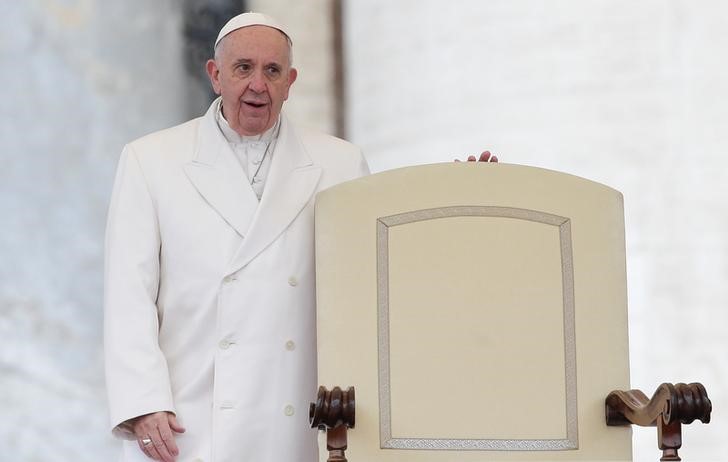The Roman Catholic Church could see a big change — for men — in the near future.
Citing a shortage of priests in an interview with German newspaper Die Zeit which he said was an “enormous problem,” Pope Francis alluded that he would consider allowing married Catholic men to enter the priesthood. “We need to consider if ‘viri probati’ could be a possibility,” he said. “If so, we would need to determine what duties they could undertake, for example, in remote communities.”“Viri probati” is a Latin term that refers to married men of proven faith. RELATED: Pope says he believes ban on female priests is forever Despite that aforementioned “enormous” priest shortage, Pope Francis did not mention opening the priesthood up to women. Back in November, he told reporters the ban on female priests was likely to remainforever. “The last word is clear,” he said, referring to an apostolic letter written in 1994 by now-canonized Pope John Paul II, which said women were ineligible because Jesus’ apostles were only men. “But women can do many other things better than men,” he added. While married men could be ordained if the change is made, single men who are already priests would not be eligible for marriage, the pontiff told Die Zeit, adding, “Voluntary celibacy is not a solution.” RELATED: Pope says carry and read bible as if it were a mobile phone Currently, the church does not allow priests to marry per the Bible and its belief that clergy acts “in persona Christi,” or in the person of Christ and should remain celibate as He did.
The pope’s new stance is a departure from his book, “On Heaven and Earth,” which was released in 2010, three years before his papacy began.
“For the time being, I am in favor of maintaining celibacy with the pros and cons that it has, because it has been ten centuries of good experiences more often than failure,” he wrote.
Amid shortage, Pope Francis mulls opening priesthood to married Catholic men

Reuters
























